Best Sports Psychology Undergraduate Programs 2026
Strong undergraduate sports psychology options include programs at Barry University, Texas Christian University, West Virginia University, and National University. These programs offer sports psychology as majors, minors, or concentrations within psychology or kinesiology degrees. Program structures vary significantly—some offer dedicated majors, while others provide minors or specialization tracks. Most prepare students for graduate school, as advanced degrees are typically required for professional practice in sports psychology. Always verify current program details directly with universities.
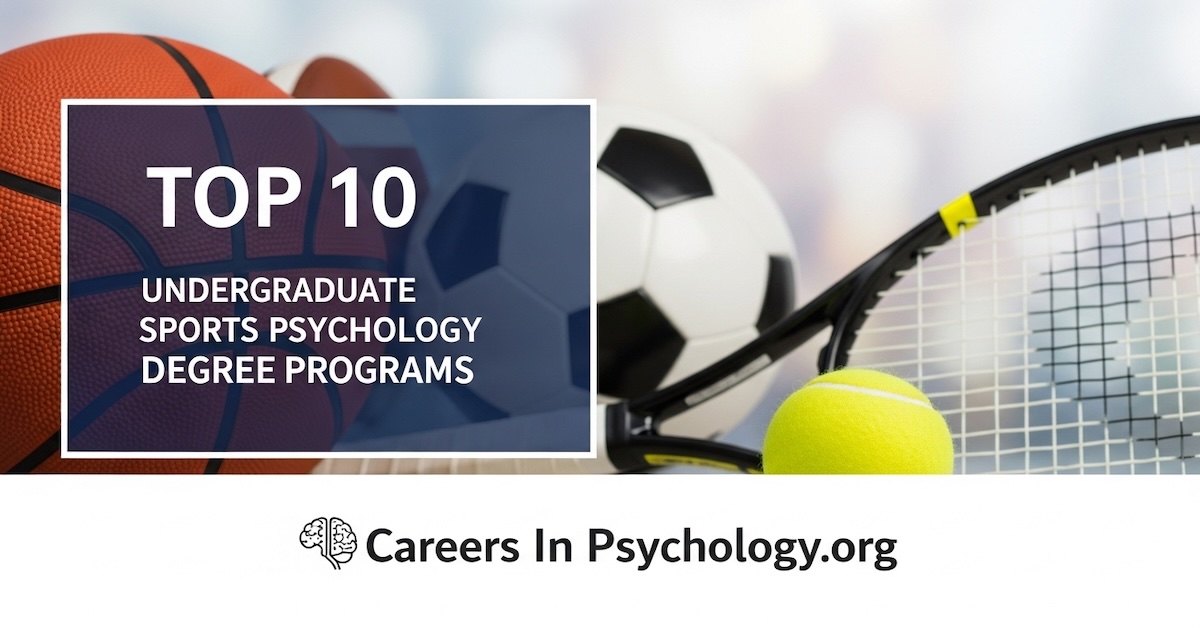
Sports psychology sits at the intersection of athletic performance and mental health, yet there's no standardized educational path for aspiring sports psychologists. This hasn't stopped many universities from creating undergraduate programs with coursework in sports psychology and specializations. While graduate degrees are typically required for professional practice and licensure in most settings, earning an undergraduate degree with a focus on sports psychology provides foundational knowledge and helps students determine if this specialized field is right for them before committing to graduate education.
The challenge? Program structures vary dramatically. Some universities offer sports psychology as a dedicated major, while others provide it as a minor, concentration, or elective track within psychology or kinesiology degrees. Some programs labeled "sports psychology" are actually exercise science programs with limited psychology content. Students need to carefully evaluate each program's actual structure, curriculum depth, faculty credentials, and alignment with the Association for Applied Sport Psychology (AASP) competency guidelines before making their decision.
Significant: Program structures, requirements, and offerings change frequently. We've compiled information on programs with strong sports psychology components, but students should verify all details directly with universities before applying. The programs below represent various approaches to undergraduate sports psychology education.
Table of Contents
What Is Sports Psychology?
Sports psychology is the scientific study of how psychological factors affect athletic performance and how participation in sport and exercise affects psychological well-being. Sports psychologists work with athletes, coaches, and teams to enhance performance through mental skills training, help athletes recover from injuries, manage competitive anxiety, and maintain motivation throughout their careers.
The field encompasses several key areas:
- Performance enhancement through visualization, goal-setting, and concentration techniques
- Injury rehabilitation by addressing the psychological aspects of recovery
- Team dynamics, including communication and leadership development
- Exercise psychology examines how physical activity affects mental health
- Youth sports focus on development and healthy competition
Professional sports psychologists typically hold doctoral degrees (PhD or PsyD) and may pursue certification through the Association for Applied Sport Psychology (AASP), which sets professional standards for the field.
Why Choose an Undergraduate Sports Psychology Program?
An undergraduate degree specifically in sports psychology offers several advantages over a general psychology degree, particularly for students who know they want to work in athletic settings.
Graduate School Preparation
Most undergraduate sports psychology programs are intentionally designed to prepare students for graduate study. They offer focused coursework aligned with graduate program prerequisites and often include research experiences that strengthen applications. Students graduate with a portfolio of relevant projects and a clear direction for their graduate studies.
Early Specialization Benefits
Starting specialized coursework as an undergraduate allows students to:
- Build relationships with faculty who specialize in sports psychology
- Participate in sport-specific research projects earlier in their academic careers
- Gain hands-on experience through internships with athletic departments
- Develop a professional network within the sports psychology community
- Clarify their interest in the field before investing in graduate education
Career Flexibility
While most sports psychology positions require graduate degrees, an undergraduate degree in this field opens doors to related careers such as athletic coaching, sports administration, fitness consulting, and academic advising. The combination of psychology and sports science knowledge is valuable across the athletic industry.
How We Selected These Programs
We evaluated undergraduate programs with sports psychology components based on several criteria. However, program details can be intricate to verify from public sources and change frequently. We recommend contacting universities directly to confirm current offerings.
Curriculum Standards
We looked for programs offering substantial sports psychology coursework beyond general psychology requirements. Some programs that align with AASP competency guidelines (including professional ethics, health and exercise psychology, performance enhancement, and counseling skills) may better prepare students for eventual graduate study and certification.
Faculty Credentials
Programs with faculty members who hold AASP certification, publish sports psychology research, or maintain active involvement with athletic programs typically offer stronger preparation. However, verifying faculty credentials can be difficult across all programs.
Research and Lab Facilities
Access to performance labs, research equipment, and opportunities to participate in faculty research projects can distinguish programs. Hands-on research experience is valuable for graduate school applications, though not all undergraduate programs maintain dedicated sports psychology labs.
Internship Opportunities
Programs that require or encourage internships provide students with practical experience working with athletes and teams. Requirements vary by program and may change, so verify current internship policies with each university.
Important Limitations
Information about undergraduate sports psychology programs can be difficult to verify through public sources. Program structures, degree offerings, and requirements change. Some programs listed here may offer sports psychology as a minor, concentration, or specialization track rather than a standalone major. Always contact admissions offices directly to confirm current program details before applying.
Top Undergraduate Sports Psychology Programs
Barry University

Location: Miami, Florida
Degree Offered: BS in Kinesiology & Sport Sciences with Sport, Exercise & Performance Psychology Minor
Program Type: Minor/Specialization within Kinesiology
Barry University's School of Human Performance and Leisure Sciences offers a Sport, Exercise & Performance Psychology minor as part of its BS in Kinesiology & Sport Sciences program. This represents one of the more developed sports psychology specializations available at the undergraduate level in the Southeast United States.
Students pursuing this specialization combine kinesiology coursework with studies in sports psychology. The program's website indicates that students may work with faculty who have expertise in sports psychology, though specific faculty credentials should be verified directly with the department.
According to program materials, students may have opportunities to conduct research projects and gain practical experience within athletic settings. The program reportedly includes coursework in sports psychology, exercise science, and athletic performance.
Barry mentions laboratory facilities that may be available for student use, though the specific equipment and access should be confirmed directly with the program.
What distinguishes Barry's program is its focus on sport and exercise psychology as a recognized specialization area within their kinesiology degree, providing students interested in this field with relevant coursework and potentially research opportunities.
Learn more about Barry University's program (verify current structure with admissions)
Hofstra University

Location: Hempstead, New York
Degree Offered: BA in Psychology with Sports Psychology Electives
Program Type: Psychology major with specialization option
Hofstra University offers a comprehensive Bachelor of Arts in Psychology that allows students to focus on sports psychology through strategic elective choices. The program combines rigorous training in psychological science with specialized sports psychology coursework.
The psychology major requires 33 semester hours, including foundational courses in research methods, statistics, and a research seminar. Students can select PSY 087 (Sport Psychology) as one of their specialty electives, complemented by related courses in health psychology, organizational psychology, and psychological testing.
Hofstra's program emphasizes scientific training and research engagement. Students complete a required research sequence, including a research seminar chosen from cognitive psychology, neuroscience, developmental psychology, industrial/organizational psychology, social psychology, or clinical psychology. This research foundation prepares students well for graduate programs.
The program offers flexibility with both essential electives (covering biopsychological, learning/cognitive, and developmental/social areas) and specialty electives. Students interested in sports psychology can combine their focus with complementary areas like personality psychology, behavior modification, or health psychology.
Hofstra's location in the New York metropolitan area provides access to professional sports teams, fitness organizations, and diverse internship opportunities. The program's emphasis on both research and applied experience makes it excellent preparation for graduate study in sports psychology.
Texas Christian University
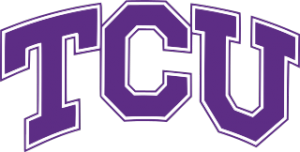
Location: Fort Worth, Texas
Degree Offered: Minor in Sport & Exercise Psychology (within Kinesiology)
Program Type: Minor/Concentration
Texas Christian University offers sports psychology coursework through its Department of Kinesiology within the Harris College of Nursing and Health Sciences. The program offers a minor in Sport & Exercise Psychology that students can combine with various majors.
Students pursuing this minor receive education that combines sport science knowledge with psychological foundations. The program may include coursework in applied sports psychology, exercise psychology, and related areas, though specific course offerings should be verified with the department.
TCU reportedly maintains laboratory facilities that may be available for student research, though the specific equipment and access for undergraduate students should be confirmed directly with the program.
According to program materials, students may have opportunities to engage in research projects and potentially complete internships related to sports psychology. However, requirements and availability may vary and should be confirmed with academic advisors.
The program's website suggests that graduates have pursued a variety of career paths and graduate programs. Students interested in sports psychology at TCU should contact the department directly to understand the current structure, requirements, and opportunities available through the minor.
Learn more about TCU's Sport & Exercise Psychology offerings (verify current program structure)
Adams State University

Location: Alamosa, Colorado
Degree Offered: BS in Sports Psychology
Program Type: Cooperative program between departments
Adams State University offers a unique sports psychology program developed cooperatively between the Department of Human Performance & Physical Education and the Department of Psychology. This interdisciplinary approach ensures students receive a balanced education in both psychological principles and sport applications.
The program focuses on teaching students how to apply psychological concepts within sport and exercise contexts. Recognizing that most careers in sports psychology require graduate education, Adams State designed the program as a strong foundation for advanced study.
The university uses established competencies that include developing and applying health and physical activity principles, designing and conducting research, demonstrating strong communication skills, and explaining major psychological perspectives. These competencies align well with the expectations of the graduate program.
Students complete a minimum of 120 credit hours, including at least 42 credit hours in upper-level courses. Writing proficiency must be demonstrated by the end of the sophomore year, ensuring students can effectively communicate research findings and psychological concepts.
Adams State opened its Human Performance Lab in 2013, accommodating up to 20 students simultaneously. The lab features treadmills, exercise bikes, an ergometer, computer stations, and additional testing equipment. This facility provides hands-on research experience typically found only at larger institutions.
The program's comprehensive approach and commitment to proper sports psychology education demonstrate Adams State's understanding of the field's professional requirements.
National University
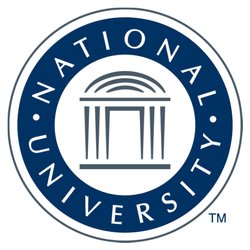
Location: San Diego, California (with online options)
Degree Offered: BA in Sport Psychology
Program Type: Major, available online and on-campus
National University offers sports psychology programs at multiple degree levels, available in both traditional and online formats for student flexibility. The university has been offering sports psychology education for many years and maintains a presence in the field.
National's undergraduate program reportedly emphasizes sports psychology from early in the curriculum. According to program materials, beyond introductory psychology and statistics courses, the curriculum may concentrate on sport and exercise psychology, applied sport psychology, and related topics. Students should verify the specific credit hour requirements and course sequences with the university.
The university operates facilities in San Diego that may support sports psychology education and research, though the specific resources available to undergraduate students should be confirmed with the program.
National University has been involved in sports psychology education for an extended period and offers programs from the undergraduate to doctoral levels. The university's long-standing presence in sports psychology education may provide students with access to faculty with field experience. However, prospective students should verify current faculty credentials and program resources directly.
Students interested in online or hybrid learning options may find National University's format appealing. However, the availability of hands-on experiences and research opportunities in online formats should be carefully evaluated.
Learn more about National University's Sport Psychology program (verify current offerings and format)
West Virginia University
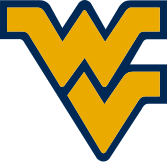
Location: Morgantown, West Virginia
Degree Offered: BS in Sport, Exercise & Performance Psychology
Program Type: Dedicated major or concentration (verify current structure)
West Virginia University offers sports psychology coursework through the College of Physical Activity and Sport Sciences. The program appears designed to prepare students for graduate study, reflecting realistic career requirements in the field.
WVU's curriculum reportedly includes foundational education in sociology and psychology, with upper-level courses in specialized areas. According to program materials, these include courses in social psychology of sport, performance enhancement, exercise psychology, and related topics; however, specific course offerings should be confirmed with the department.
Program materials suggest that internship opportunities may be available and that students in good standing may have the option to work alongside graduate students on research projects. The specific requirements and availability of these opportunities should be verified directly with the program.
What has been noted about West Virginia's approach is transparency about career expectations. Program materials reportedly acknowledge that professional positions in sports psychology typically require graduate education beyond the bachelor's degree.
Students interested in this program should contact WVU directly to confirm the current program structure, requirements, internship availability, and research opportunities.
Learn more about WVU's Sport Exercise Psychology offerings (verify current program details)
Arcadia University

Location: Glenside, Pennsylvania (with study abroad requirement)
Degree Offered: BA in Sports Psychology
Program Type: Majors Abroad Program
Arcadia University's sports psychology program is unique as a Majors Abroad Program, requiring students to spend their junior year studying overseas after completing core psychology requirements at the Pennsylvania campus.
Students spend their third year at either the University of Stirling in Scotland or St. Mary's University College in London, completing at least three courses in sports science or sport psychology. This international experience provides exposure to different approaches and perspectives in the field.
The senior year focuses on an internship and a thesis project on a specific topic. This requirement is uncommon for undergraduate programs and provides students with research experience and professional connections typically reserved for graduate students.
As first-year students, students take social psychology and introduction to psychology courses. Sophomores progress to behavioral neuroscience, elementary statistics, and health psychology. This sequencing ensures students build a solid psychology foundation before specializing in sports psychology.
The major requires 48-51 credit hours. Arcadia's approach ensures that students receive a comprehensive education in psychology-related fields first, which provides a strong foundation for specialized sports psychology coursework.
The combination of study abroad experience, required thesis work, and mandatory internship makes Arcadia's program particularly valuable for students planning to pursue graduate degrees in sports psychology.
Robert Morris University
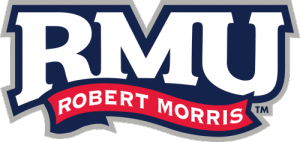
Location: Moon Township, Pennsylvania
Degree Offered: BS in Psychology with Sport Psychology Concentration
Program Type: Psychology major with concentration
Robert Morris University offers a Bachelor of Science in Psychology with a concentration in Sport Psychology. This structure recognizes that students need solid psychology foundations and that most sports psychology graduate programs accept students with general psychology degrees.
The program follows a clear progression. First-year students take general psychology and research courses mixed with core classes. Sophomores advance to more specialized psychology and statistics courses. Juniors begin sports psychology-specific courses and electives, while seniors complete a thesis, practicum, and additional sports psychology electives.
Students need 18 credit hours to earn the concentration, including at least one biology or anatomy course. This biological science requirement ensures students understand the physiological aspects of athletic performance.
Robert Morris was one of the first schools to offer formalized sports psychology coursework at the undergraduate level, even as a concentration rather than a full major. While the program doesn't have dedicated performance labs like some larger programs, it provides high-quality education that prepares students for graduate opportunities.
The concentration approach offers advantages for students who want exposure to sports psychology while maintaining flexibility for other career paths or graduate programs that require a general psychology background.
Learn more about Robert Morris University's Psychology program
Texas A&M University – Kingsville
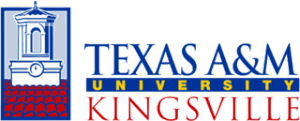
Location: Kingsville, Texas
Degree Offered: BS in Kinesiology with Sport Psychology Focus
Program Type: Kinesiology major with a focus area
Texas A&M University-Kingsville approaches sports psychology through its Department of Health & Kinesiology, offering sport psychology as an optional focus area within the Bachelor of Science in Kinesiology degree. Other focus areas include Exercise Science, Physical Education, and Sport Business.
What makes this program distinctive is its required minor in psychology. The department offers more than 30 courses ranging from Applied Sports Psychology and Sport & Law to Biomechanics, Medical Terminology, and Sport Economics & Finance. The psychology minor provides theoretical foundations, while the kinesiology major provides applied sports science knowledge.
The program prepares students for careers in coaching and human services or for graduate work in sports psychology and rehabilitation therapy. This dual focus acknowledges both immediate career options and long-term graduate school pathways.
TAMU-Kingsville maintains a comprehensive Human Performance Lab comprising one central lab, five specialized, smaller labs, and extensive body composition testing equipment. The lab features state-of-the-art resources and equipment supporting student research, projects, and athlete performance assessment.
This isn't a hastily created program designed to meet demand. TAMU-Kingsville operates a fully functioning department with quality faculty, abundant resources, and a formalized education plan that prepares students for careers in sports psychology.
Learn more about TAMU-Kingsville's Sport Psychology program.
California State University – Long Beach
![]()
Location: Long Beach, California
Degree Offered: BS in Kinesiology with Sport Psychology & Leadership Option
Program Type: Kinesiology major with specialization
California State University, Long Beach, offers students multiple pathways within the kinesiology major. The Sport Psychology and Leadership option offers two concentrations —sports psychology or leadership —so students can focus on their specific interests.
The program maintains high standards from the start. Prerequisites include a minimum 3.0 GPA and grades of C or better in courses including Human Physiology, Human Anatomy, Introductory Psychology, and Statistics for Everyday Life. Students must also complete requirements in written and oral communication, nutrition, and critical thinking.
Long Beach State operates more than six specialized labs within the Department of Kinesiology, including a dedicated sports psychology lab. The department offers several kinesiology-specific scholarships, demonstrating institutional commitment to students in these programs.
The university's commitment to kinesiology and related disciplines is evident through its extensive resources, rigorous admission standards, and student support. Students interested in sports psychology should be encouraged by the program's comprehensive approach and apparently endless resources.
Long Beach State's location in Southern California provides access to professional sports teams, elite training facilities, and diverse athletic populations for research and internship opportunities.
Program Comparison Table
Important Note: Program structures and requirements change frequently. This table reflects information available at the time of publication, but should not be considered definitive. Contact universities directly to verify current program details, degree types, and requirements before applying.| University | Program Structure | Notable Features | Research Facilities | Practical Experience |
|---|---|---|---|---|
| Barry University | Sport, Exercise & Performance Psychology Minor (within Kinesiology BS) | Specialization in sports psychology within the kinesiology program | Laboratory facilities (verify availability) | Opportunities may be available (verify) |
| Hofstra University | BA in Psychology with Sport Psychology Elective | Research seminar requirement, Flexible elective structure | Psychology research facilities | Internship opportunities available |
| Texas Christian University | Minor in Sport & Exercise Psychology (within Kinesiology) | Kinesiology focus with psychology components | Laboratory facilities (verify access) | May be available (verify requirements) |
| Adams State University | BS in Sports Psychology or related (verify current structure) | Interdepartmental approach between Psychology and HPE | Human Performance Lab | Opportunities may be available |
| National University | BA in Sport Psychology (Major) | Online and on-campus options, Multiple degree levels offered | San Diego campus facilities (verify) | Varies by format (verify for online) |
| West Virginia University | BS in Sport, Exercise & Performance Psychology (verify current type) | Graduate school preparation focus, Transparent about career requirements | Research facilities may be available | Internship opportunities (verify requirements) |
| Arcadia University | BA in Sports Psychology (Majors Abroad program) | Required study abroad (UK), Senior thesis | International partner facilities | Required senior internship and thesis |
| Robert Morris University | BS in Psychology with Sport Psychology Concentration | 18-credit-hour concentration, Biology/Anatomy requirement | Psychology department facilities | Practicum opportunities available |
| Texas A&M – Kingsville | BS in Kinesiology with Sport Psychology Focus | Required psychology minor, Multiple focus options | Human Performance Lab complex | Opportunities available |
| CSU Long Beach | BS in Kinesiology with Sport Psychology & Leadership Option | 3.0 GPA prerequisite, Departmental scholarships available | Multiple kinesiology labs | Opportunities available |
Key for table interpretation: "May be available" and "verify" notations indicate features that should be confirmed directly with universities. Program structures listed reflect publicly available information but may have changed. Always contact admissions offices for the most up-to-date, accurate program details.
Career Outcomes and Salary Expectations
It's important to understand that professional sports psychology positions typically require a master's or doctoral degree. However, an undergraduate degree in sports psychology opens doors to related careers while providing excellent preparation for graduate school. Most students pursue graduate education to become licensed sports psychologists, where they can work with professional athletes, college teams, or in private practice focusing on performance enhancement and mental health.
Career Paths with a Bachelor's Degree
Graduates with undergraduate sports psychology degrees find employment in:
- Athletic coaching and training at high school, college, or club levels
- Sports administration working for athletic departments or organizations
- Fitness and wellness consulting in gyms, corporate wellness programs, or private practice
- Academic advising for student-athletes at universities
- School counseling (with additional certification)
- Research assistant positions in a university or private research labs
- Sales and marketing for sports equipment, athletic apparel, or fitness companies
Graduate Degree Career Outcomes
Most students pursue graduate education to become a sports psychologist. Career options with advanced degrees include:
- Clinical sports psychologist working with professional or Olympic athletes
- University professor teaching and conducting research
- Performance consultant for sports teams or individual athletes
- Rehabilitation specialist helping athletes recover from injuries
- Exercise psychologist promoting mental health through physical activity
Salary Data for Psychology Professionals
According to the US Bureau of Labor Statistics (May 2024 data, accessed October 2025), psychologists with advanced degrees earn competitive salaries:
- Psychologists (all categories) earn a median annual wage of $92,740
- Clinical and counseling psychologists earn a median of $96,100 annually
- School psychologists earn a median of $84,940 per year
- Industrial-organizational psychologists (who may work with sports teams) earn a median of $139,280 annually
These salary figures reflect positions that typically require master's or doctoral degrees. Entry-level positions with only a bachelor's degree in sports psychology or related fields generally pay less than these figures, with salaries varying widely by role, location, and employer type. Students should research specific US career paths and locations for relevant salary information.
Sports psychology skills also translate well to industrial-organizational psychology careers, where professionals work with corporate teams and organizations to enhance workplace performance and employee well-being, earning a median salary of $139,280 annually.
Frequently Asked Questions
Do I need a graduate degree to work as a sports psychologist?
Yes, professional sports psychology positions require at minimum a master's degree, and many require a doctoral degree (PhD or PsyD). An undergraduate degree in sports psychology prepares you for graduate school. It opens doors to related careers in athletics, but you cannot practice as a licensed sports psychologist with only a bachelor's degree.
What's the difference between sports psychology and exercise science?
Sports psychology focuses on the mental and emotional aspects of athletic performance, including motivation, anxiety management, goal-setting, and team dynamics. Exercise science focuses on the physiological aspects of physical activity, including biomechanics, nutrition, and physical training. Some programs combine both areas, while others are distinct. Carefully review each program's curriculum to ensure it aligns with your interests.
Should I major in general psychology or sports psychology for undergrad?
Both paths can lead to sports psychology graduate programs. A dedicated sports psychology major provides specialized knowledge and relevant experience earlier, but a general psychology degree offers more flexibility if you decide to pursue different graduate specializations. Choose based on how certain you are about sports psychology and which program offers better resources and faculty in your area.
What can I do with a sports psychology degree if I don't go to graduate school?
Undergraduate sports psychology degrees open careers in athletic coaching, sports administration, fitness consulting, wellness program management, academic advising for athletes, and sports marketing. While you can't practice as a sports psychologist without graduate education, the combination of psychology and sports knowledge is valuable across the athletic industry.
Are online sports psychology programs legitimate?
Accredited online programs from established, regionally accredited universities can provide legitimate education. However, the quality and recognition of any program depend on proper accreditation and the opportunities for applied, hands-on work. Sports psychology benefits significantly from practical experience with athletes and laboratory work, which can be more challenging to obtain in fully online formats. Students considering online programs should verify regional accreditation status, investigate opportunities for in-person practicums or residencies, and research how graduate programs view online undergraduate degrees. Hybrid programs that combine online coursework with in-person practical components often provide better preparation for graduate school and careers.
What is AASP certification, and do I need it?
The Association for Applied Sport Psychology (AASP) offers the Certified Mental Performance Consultant (CMPC) certification, a leading professional credential in the field. You don't need it as an undergraduate, but choosing a program where faculty hold AASP certification or where the curriculum indicates alignment with AASP competencies may better prepare you for eventual certification after completing graduate education.
How competitive are sports psychology graduate programs?
Sports psychology graduate programs are highly competitive, with many programs accepting only a small percentage of applicants. Admission typically requires strong grades, research experience, relevant internships or volunteer work with athletes, competitive GRE scores, and a clear statement of purpose that demonstrates genuine interest and understanding of the field. An undergraduate degree with coursework in sports psychology and research experience may provide advantages in the application process, though competition remains intense for limited spots.
Key Takeaways
- Graduate education is typically essential for professional sports psychology practice and licensure. Undergraduate programs primarily prepare you for graduate school rather than immediate career entry as a licensed sports psychologist, though related career paths may be available.
- Program structures vary significantly. Some universities offer sports psychology as a dedicated major, while many provide it as a minor, concentration, or elective track within psychology or kinesiology degrees. Carefully verify the actual program structure and degree you'll receive.
- Research and practical experience matter. Programs offering laboratory facilities, research opportunities, and internship experiences give you advantages for graduate school applications, though availability varies by program and should be confirmed.
- AASP alignment may indicate quality. Programs with faculty who hold AASP certification or demonstrate alignment with AASP competencies may provide education that is more consistent with professional standards. However, undergraduate programs vary in how directly they prepare for eventual certification.
- Verify everything directly with universities. Program details, requirements, and offerings change frequently. Always contact admissions offices to confirm current program structures, degree types, internship requirements, and available resources before applying.
- Career flexibility exists with a bachelor's degree. While you typically can't practice as a licensed sports psychologist without graduate education, undergraduate degrees with a focus on sports psychology can lead to coaching, athletic administration, fitness consulting, and related fields while you prepare for graduate school.
Ready to Start Your Sports Psychology Education?
Explore accredited psychology degree programs that match your interests and career goals. Find programs with sports psychology specializations, research opportunities, and pathways to graduate school.
Find Psychology Programs
2024 US Bureau of Labor Statistics salary figures and job growth projections for Clinical and Counseling Psychologists, Industrial-Organizational Psychologists, School Psychologists, and Psychologists-All Other are based on national data, not school-specific information. Conditions in your area may vary. Data accessed October 2025.









